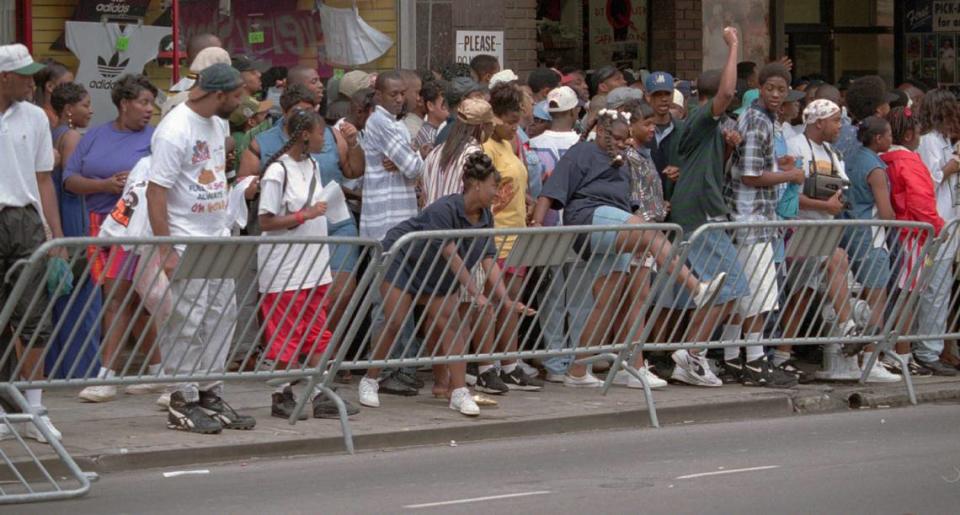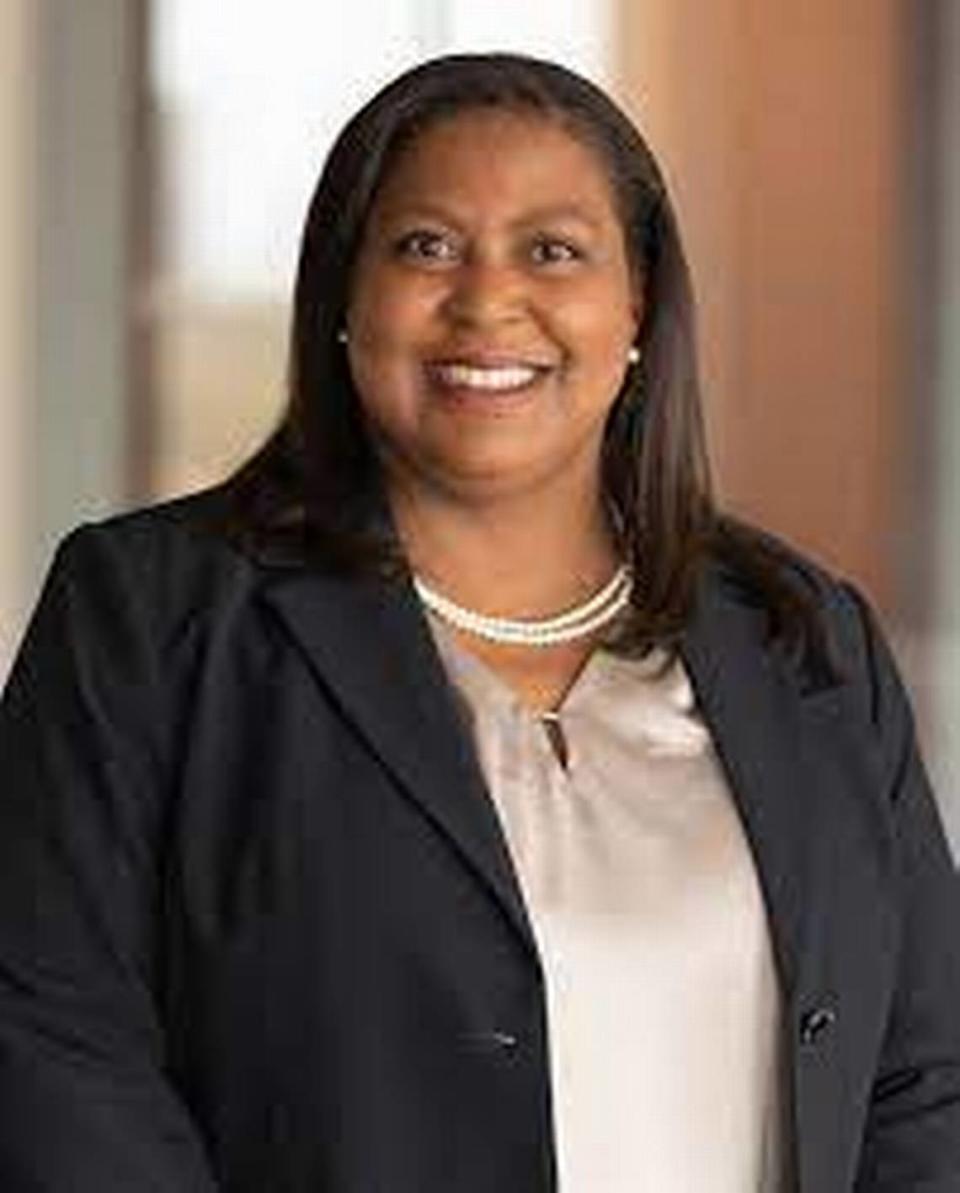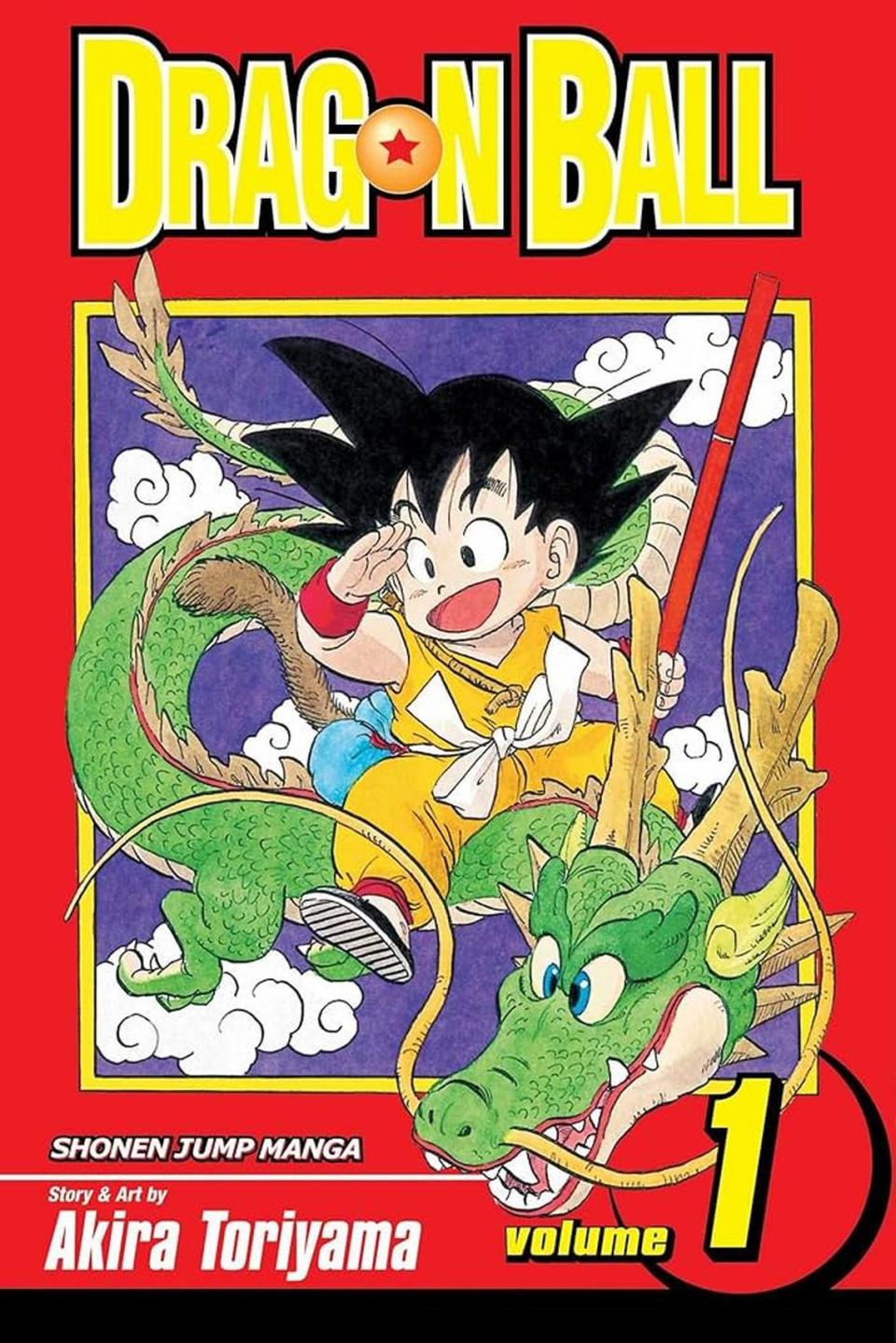The 44 Percent: Burna Boy, Uncle Luke’s Hulu doc, Detra Shaw-Wilder
- Oops!Something went wrong.Please try again later.
- Oops!Something went wrong.Please try again later.
As a kid who grew up listening to hip-hop, it makes sense that Burna Boy idolizes New York City.
That’s why “I Told Them,” Burna’s latest project filled with features including 21 Savage, GZA, RZA and J. Cole, is heavily inspired by the genre born from the slums of the Bronx. So for the album’s accompanying tour, it was only right that the show, which stopped in South Florida on March 12, incorporated various elements of the Big Apple.
There’s the set design that’s essentially an ode to an NYC street, complete with a barbershop and a bodega. The videos that play on the monitor as he sings incorporate the Statue of Liberty, subways and graffiti. One of his dancers even sports a New York Yankees pinstripe jersey. The show seems to transport the audience to Burna Boy’s New York, an idyllic place where dreams come true.
“The story of me in New York is basically the story of my whole career,” Burna Boy told the Los Angeles Times in 2023. “There were no elevators. It was a straight staircase. I went from PlayStation Theater to Gramercy Theatre to the Apollo to Madison Square Garden and finally Citi Field.”
As such, the performance – and much of Burna Boy’s career, for that matter – felt like an olive branch to the African Diaspora. Burna Boy has frequently discussed how he wants his music to be a unifying force for people of African descent and as he cycled through hits from “I Told Them” and beyond, you could actually see the crowd come together in real time. “Ye” felt like a resounding triumph. Each stomp during the “City Boys” chorus felt like a chance to stand up over the haters. Even RZA’s voice on “Jewels” which served as an intro to his performance of “If I’m Lying” felt like a call to action.
What makes Burna Boy such a unique artist – aside from the aforementioned visual details – is that he actually performs instead of just standing around singing his songs. He jumps, he flails, he dances – he actually puts on a show. That alone makes him one of the more engaging artists not just in the Afrobeats scene, over which he reigns supreme, but in all of music.
- C. Isaiah Smalls II
INSIDE THE 305
Uncle Luke’s documentary about the rise and fall of Freaknik echoes Miami Beach spring break:

Miami Herald Race and Culture reporter C. Isaiah Smalls II spoke to Miami hip-hop legend Luther “Uncle Luke” Campbell about his new documentary “Freaknik: The Wildest Party Never Told.” The documentary covers one of the biggest Black social events of the ‘90s.
There’s a misconception that Freaknik was a haven of debauchery.
Its origins, however, were rather innocent: a spring break alternative in Atlanta for Black college students not interested in going to Daytona Beach and Galveston. Started by four students at Spelman and Morehouse colleges from Washington D.C., Freaknik only later evolved into the citywide party that Atlanta’s political arm eventually shutdown.
And though it was an Atlanta event, make no mistake: Freaknik wouldn’t be the same without Miami bass and Uncle Luke.
“I felt like we’re the freak kings of music – that’s definitely a weekend we got to be a part of,” Luther “Uncle Luke” Campbell told the Miami Herald.
The full story of Freaknik will be explored in the new documentary “Freaknik: The Wildest Party Never Told” available March 21 via Hulu. Executive produced by Uncle Luke, Jermaine Dupri and 21 Savage, the documentary explores the history of the event but also the factors that simultaneously led to its downfall and Atlanta’s explosion of Black culture.
A prominent Black lawyer in Coral Gables nominated as federal judge in South Florida

Black Coral Gables attorney Detra Shaw-Wilder has been nominated to be a federal judge by President Joe Biden and Herald reporter Jay Weaver got all of the details:
A prominent Black lawyer was passed over for three federal judicial vacancies in South Florida, but on Wednesday Detra Shaw-Wilder finally got the nod from the president for a fourth opening on the bench.
Shaw-Wilder, an attorney with the Kozyak Tropin & Throckmorton law firm in Coral Gables since 1994, was formally nominated for a federal judgeship in Miami by President Joe Biden.
Shaw-Wilder, 54, who received her law degree from the University of Miami School of Law and her bachelor’s degree from the University of Florida, served as managing partner of the firm and is currently its general counsel. The high-profile commercial law firm was involved in securing a settlement for the families of victims killed in the Surfside condo building collapse in June 2021.
“We couldn’t be prouder of Detra Shaw-Wilder,” said one of the law firm’s name partners, Harley Tropin. “A great moment for her and the legal community.”
OUTSIDE THE 305
Online racism is linked to PTSD symptoms in Black youth, study finds
Kids today have to deal with the challenges of social media and this NBC News story brings that to light. A recent study show that Black children and teens face racism online that can lead to Post Traumatic Stress Disorder (PTSD).
Mounting evidence shows the devastating toll online racism takes on Black youth.
According to a study published Wednesday in the journal JAMA Psychiatry, Black children and teens who experience racial discrimination online may develop symptoms related to post-traumatic stress disorder.
Those PTSD symptoms, the researchers found, were also potentially linked to suicidal thoughts.
The suicide rates of Black youth have risen over the past two decades, said study co-author Ashley Denise Maxie-Moreman, PhD, a pediatric clinical psychologist at Children’s National Hospital in Washington, D.C.
A 2023 report from Johns Hopkins Bloomberg School of Public Health found that from 2007 to 2020, the suicide rate in Black children and teens ages 10 to 17 increased by 144% — the fastest increase compared to other racial and ethnic groups.
The researchers suspected that online racism might play a role in suicide risk.
“We know that cyberbullying is an issue for all kiddos,” Maxie-Moreman said. “But in particular, for our Black youth, cyberbullying in the form of online racial discrimination is a really big issue.”
HIGH CULTURE
Finding Ourselves in Dragon Ball: How Black Fans Connected To The Anime Series

Dragon Ball creator Akira Toriyama passed earlier this month at the age of 68 and his famous anime and manga work transcended languages and social barriers. Bradford William Davis wrote about Dragon Ball’s importance in the Black community for Slate.
On March 8, a few minutes after seeing the news that the titanic anime and manga creator Akira Toriyama had died on March 1 at the age of 68, I, like all Black men in mourning, started drafting a text to my group chat. But before I could fire off my reflexive expression of grief and celebration, my guy Daniel wrote simply: “RIP to our king.” The word “our” leaped out at me, striking in all that it represented. Black people claim Akira Toriyama; he was ours.
He was everyone’s, of course; I don’t mean to hog a man whose work has no borders. It’s difficult to sum up just how influential and universal Toriyama’s work was, but believe me when I say that you can see the impact of his oeuvre—especially Dragon Ball, one of the bestselling manga series of all time, which spawned a colossal anime and media franchise—across nearly every domain of pop culture, from music to sports to video games to comics to TV and film. “
After filmmaker Hayao Miyazaki, Toriyama is likely the most influential Japanese artist of modern times,” Gene Park wrote for the Washington Post. Toriyama transcended language, race, and ethnicity, too; last year for the Los Angeles Times, JP Brammer penned the definitive essay about witnessing Toriyama’s most iconic character—the pure-hearted, spiky-haired hero Goku, who stars in each iteration of the Dragon Ball franchise—approach the status of secular sainthood in Mexico.
Where does “The 44 Percent” name come from? Click here to find out how Miami history influenced the newsletter’s title.

